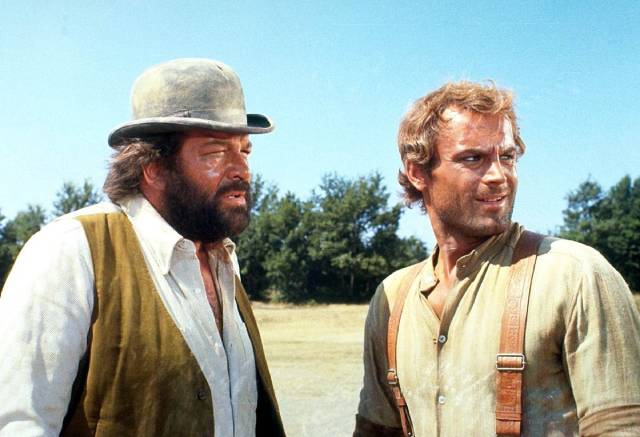
My plunge into streaming has been more rewarding than not, catching up with a slew of recent action movies as well as a variety of older movies I missed decades ago, or remember from television screenings back in the ’70s.

Until fairly recently I’ve avoided streaming – I like nothing better than handling physical media, taking small shiny disks out of their case and putting them back on the shelf as part of my collection after watching their contents. But various factors have been pushing me towards rethinking my collector mentality and in the past few months I’ve found myself mixing and increasing amount of streaming into my viewing. This has included a number of (limited) series as well as quite a few older and newer movies. And I’ve become aware that I haven’t been writing about these shows because – that collector mentality again – I have kind of ghettoized them: somehow I haven’t taken a streamed movie as seriously as the ones I own. So perhaps it’s time to consider them here…
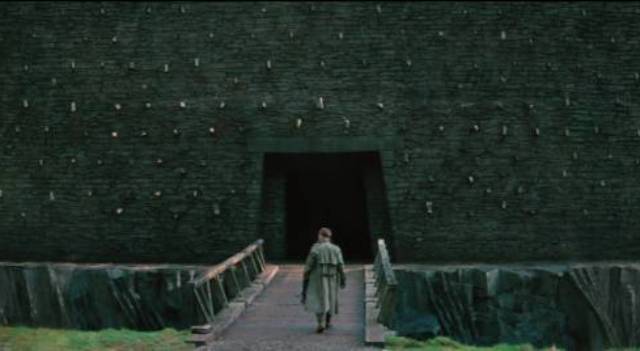
With the end of my Vinegar Syndrome subscription, I’ll be getting a lot fewer disks from them this year, but there are still a few leftovers from last year to consider – I won’t miss things like Phillip Noyce’s Sliver (1993), but without the subscription I might never have seen Fred Burnley’s romantic-horror oddity Neither the Sea Nor the Sand (1972). Only a brand-new 4K restoration of Michael Mann’s flawed second feature, The Keep (1943), gives me a twinge of regret. Still, although I’ll have to be much more judicious about ordering without the subscription, hopefully there’ll be other interesting releases like this in the future.
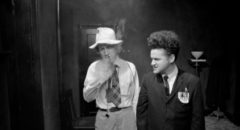
In December 1981 I got to meet David Lynch and spend time with him in his office at Universal Studios as he recounted the remarkable story of making his first feature, Eraserhead (1977). But he talked about much more – his early life, his passion for art, and how painting and sculpture evolved into an interest in filmmaking. Although I’ve previously published the transcripts of those sessions in my book about Eraserhead, I thought it would be a fitting tribute to David to post the actual recordings here; when spoken in his distinctive voice, his words convey so much more than they do on the page.
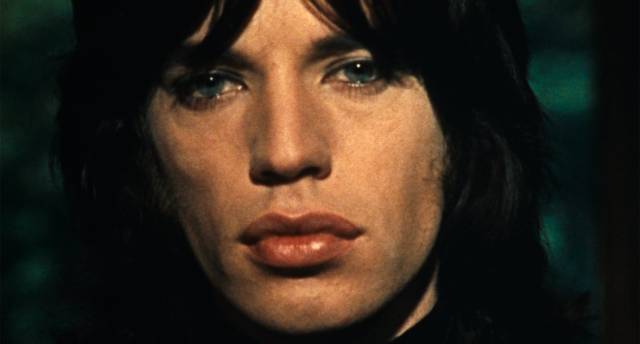
Performance (1970), co-directed by Donald Cammell and Nicolas Roeg, is one of the key films to emerge from Britain towards the end of the 1960s, a turbulent decade during which the post-war order was challenged by a generation seeking to redefine society; the film’s radical style – with disorienting editing and a rejection of conventional linear narrative – both reflected and embodied the chaos in a story which deconstructed class, sexuality and individual identity in a welter of violence clashing with art and music. More than fifty years later, the film seems fresher and more pertinent than ever.
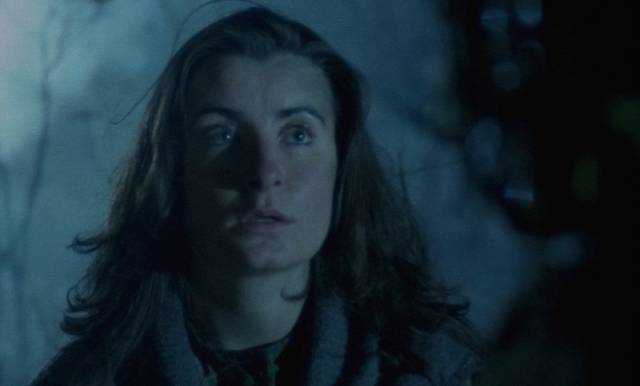
Three recent releases from England explore the survival into the modern world of ancient mystical forces, illustrating different aspects of folk horror. In Daniel Kokotajlo’s Starve Acre (2023) a pagan entity brings tragedy to a family; in Robert Wynne-Simmons’ The Outcasts (1982), villagers in 19th Century Ireland believe a farm girl is a witch: and in Peter Sasdy’s The Stone Tape (1972), scripted by Nigel Kneale, a research team believe they’ve found the mechanism behind hauntings.
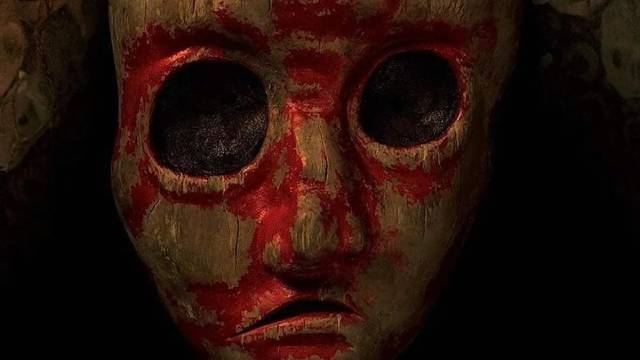
Two recent box sets – Arrow’s J-Horror Rising and Severin’s All the Haunts Be Ours Vol. 2 – provide a dizzying range of horror and fantasy movies from multiple cultures and cinematic traditions. Each set includes a range of extras which illuminate not only the cultural differences but also similarities in theme and emotional impact displayed by these movies.
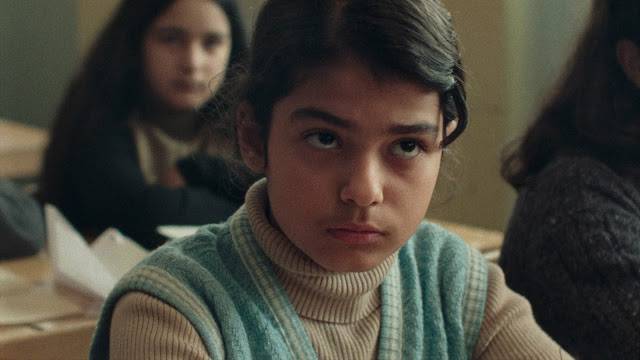
Matthew Rankin’s Universal Language (2024) is a delightfully witty comedy of intertwined cultures, a blend of Winnipeg and Tehran, sparking surprising moments of recognition which affirm a shared humanity. Formally inventive, its layered comedy gathers a deepening emotional resonance as its non-linear narrative gradually brings a disparate collection of characters together in a surprisingly moving final act. One of the finest films ever made in Winnipeg.
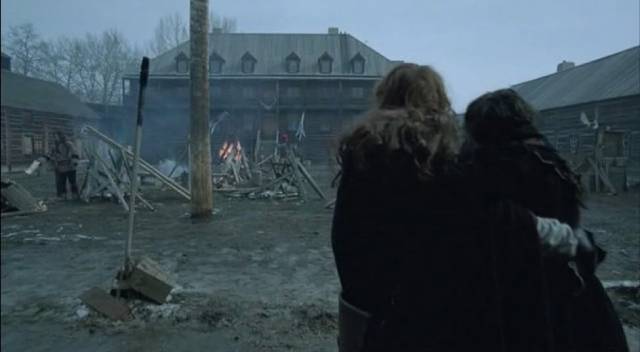
Four new limited edition releases from Second Sight gave me a reason to revisit and to some degree re-evaluate movies I was quite familiar with. While my opinions may not have changed radically, each set did give me a new appreciation for the filmmakers’ work, most particularly in the case of Daniel Myrick and Eduardo Sánchez’s influential The Blair Witch Project (1999). The care and attention the company lavish on genre films – here, in addition to Blair Witch, the Ginger Snaps Trilogy (2000-04), Brandon Cronenberg’s Possessor (2020) and Ti West’s The Sacrament (2013) – is exemplary.
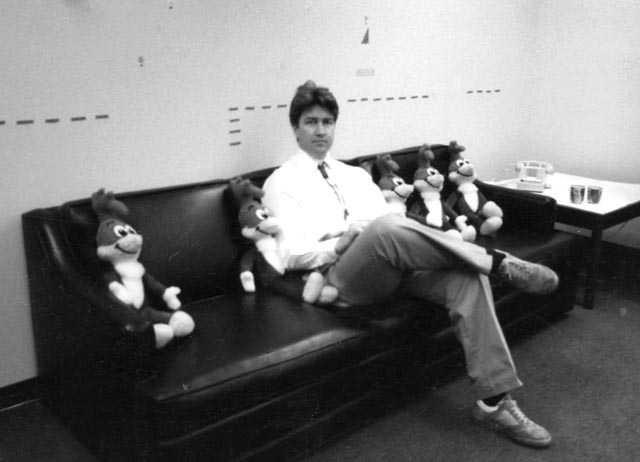
The death of David Lynch has been deeply felt by countless fans and admirers around the world. For me, this is not just the loss of a hugely influential and original artist; it’s the loss of a generous man whom I met through a chain of implausible events and whose generosity had a transformative effect on the course of my life and also on shaping the person I’ve become. The sense of loss is immeasurable.